Evaluating Country Programmes - OECD Online Bookshop
Evaluating Country Programmes - OECD Online Bookshop
Evaluating Country Programmes - OECD Online Bookshop
Create successful ePaper yourself
Turn your PDF publications into a flip-book with our unique Google optimized e-Paper software.
<strong>Evaluating</strong> <strong>Country</strong> <strong>Programmes</strong><br />
154<br />
Client focus and strategic selectivity<br />
The forementioned World Bank study recommends that country evaluations<br />
increase their client focus and strategic selectivity. Strategic selectivity involves<br />
prioritising Bank activities using criteria of potential, likely and additional impact.<br />
The same argument applies to evaluations. <strong>Country</strong> evaluations should be organised<br />
around a number of key issues and areas of interest to both the country and<br />
the institution and should avoid trying to cover too wide a range of issues, sectors<br />
and instruments that could have the effect of diluting the impact. Evaluations<br />
should be brief and organised around key elements that affected the outcome of<br />
the strategy and assistance programme.<br />
Evaluations should attempt to increase their client focus and strategic selectivity.<br />
Extent of evaluation<br />
A description of the different possible types of country evaluations was provided<br />
earlier to illustrate the possible extent and coverage of the exercise. In ideal<br />
circumstances, institutions would attempt to carry out a full and extensive CAE for<br />
each of its major country clients, but given resource, data and other constraints,<br />
they need to be more selective in their approach. Clearly it is possible to carry out<br />
simpler types of evaluations, assessing the relevance of a strategy in meeting the<br />
institution’s objectives and priorities and whether overall project performance was<br />
satisfactory. However, while this is useful in terms of feedback and lessons learned,<br />
these simpler evaluations do not provide much in terms of the value, impact or success<br />
of the assistance to the country.<br />
Rather than attempting simpler, less informative evaluations, institutions should attempt to<br />
carry out as broad and informative an evaluation as they can, given their resource, data and other<br />
constraints.<br />
Cost considerations<br />
Administrative resources being limited, it is important that they be used to<br />
evaluate Bank activities as efficiently and effectively as possible. There are potentially<br />
many levels of analysis and activities that could come under CAE. Therefore,<br />
in order to minimise costs, institutions must be selective as to the level of analysis<br />
and number of activities they wish to cover. Resources allocated for evaluation must<br />
be commensurate with the level of analysis and extent of coverage chosen. As<br />
experience is gained in undertaking these evaluations, it will be possible to<br />
reduce costs over time. The World Bank has reduced costs by shortening the<br />
country assessment review (CAR) process through focusing only on current and<br />
relevant issues and on the introduction of the country assessment notes (CAN).<br />
The so-called “quick and dirty” approach to country assistance evaluation permits<br />
to raise issues that could be studied in greater detail if necessary, using additional<br />
resources.<br />
<strong>OECD</strong> 1999





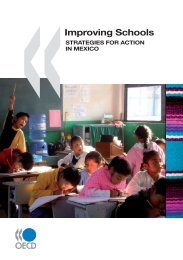
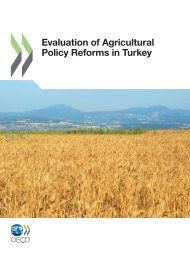
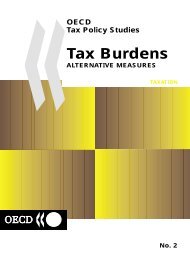
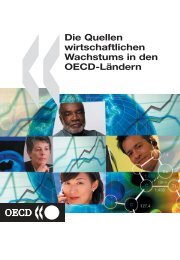
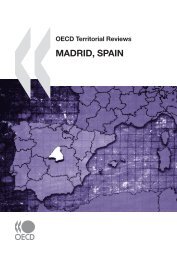



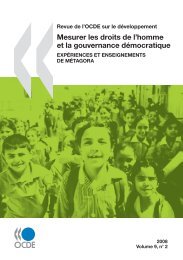
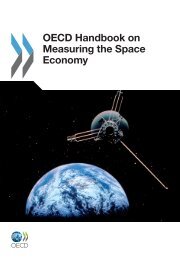
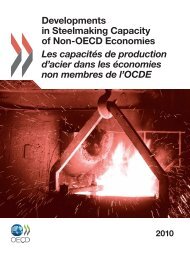
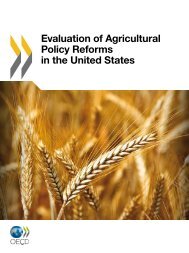
![CQE=U]^\]Z: KAZAKHSTAN - OECD Online Bookshop](https://img.yumpu.com/3915768/1/190x253/cqeuz-kazakhstan-oecd-online-bookshop.jpg?quality=85)